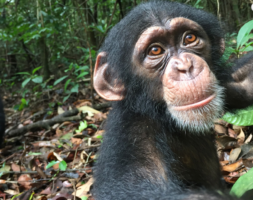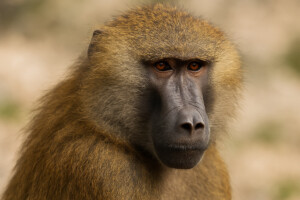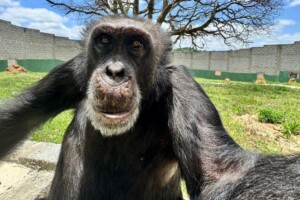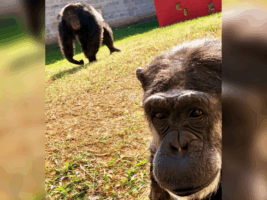The Wound of Forgetfulness
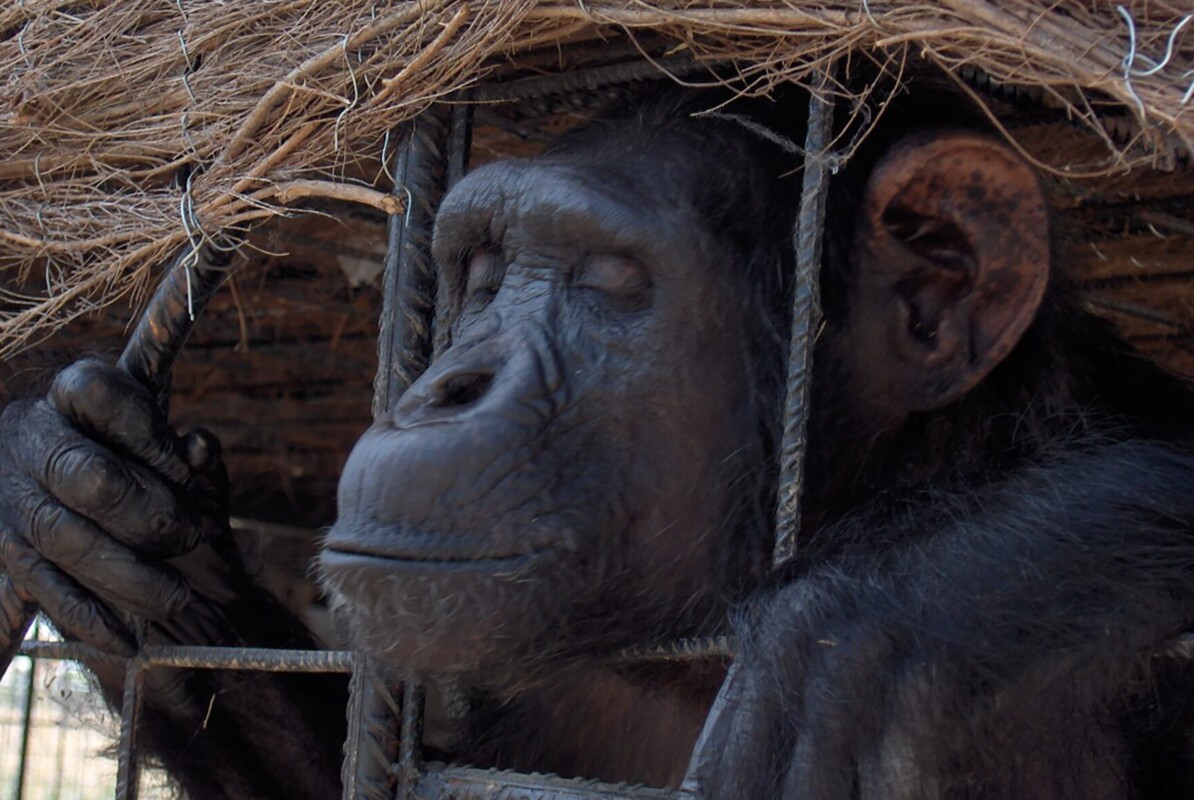 Caption: (Pedro Pozas Terrados)
Caption: (Pedro Pozas Terrados)
By Pedro Pozas Terrados*
It is incomprehensible, and at the same time revealing, that in the 21st century—when science has proven beyond any doubt the genetic, cognitive and emotional closeness we share with the great apes—we still relegate them to the silence of forgetfulness, to invisible rejection, and to exploitation disguised as entertainment, research or simple indifference.
Why does this happen? Why do so many groups that should be at the forefront of their defense—animal rights advocates, conservationists, scientists, primatologists, the media, and even States—turn their faces away? Why does society, rightly moved by cruelty toward dogs and cats, remain silent before the tragedy of chimpanzees, gorillas, orangutans, and bonobos, condemned to lifelong captivity, used as objects, turned into merchandise or simple numbers in a zoo’s ledger?
The paradox of forgetting
We are not talking about distant beings or incomprehensible species: we are speaking of members of our own evolutionary family. They feel, laugh, cry, form bonds, recognize themselves in mirrors, transmit culture, communicate through gestures and symbols, and possess a memory that still holds the echo of lost freedom. And yet they are deliberately ignored.
This silence is not accidental. It has deep roots:
– The fear of the mirror: Looking into the eyes of a great ape is to look into ourselves, stripped of artifice. To recognize them as non-human persons would mean accepting a vast moral debt and, at the same time, questioning the superiority we have granted ourselves as a species. We prefer to deny them rather than face this truth.
– Economic interests: Zoos, circuses (though banned in many countries), laboratories, tourism, illegal trafficking—the industry that exploits them moves millions. And wherever there is money, ethics is usually the first victim.
– Cultural inertia: Generations grew up visiting zoos without questioning what they saw. It is taken as “normal” to observe a gorilla behind bars, without pausing to consider the sadness in its eyes or the emptiness of its life.
– Political and social fear: Recognizing rights for great apes would open the door to rethinking our entire relationship with all animals. And the State, under pressure from economic lobbies, avoids touching that sensitive point.
– The speciesism of selective animalism: Society has learned to protect dogs and cats—and it is good that it has—but that empathy does not extend to hominids. They are seen as too human to be animals, yet too animal to be human. They remain in an ethical limbo that makes their exclusion easy.
An evolutionary betrayal
The treatment we give great apes is, in essence, a betrayal. Because we know who they are; we know their intelligence; we understand their suffering—and yet we choose to exploit or silence them. It is as if, deep down, we reject those who remind us that we are not so special, not so different.
Perhaps there exists an unconscious rejection of one hominid toward another: a psychological mechanism to maintain distance and protect the illusion of our supremacy. Because if we were to recognize them as siblings, we would have to revise our entire way of life—and that, for many, is unacceptable.
The responsibility of those who remain silent
Here, neither scientists nor primatologists are exempt. Those who know them best—who have studied their lives and emotions, lived among them, and witnessed their intelligence—should be their main defenders. Yet many hide behind academic neutrality, institutional silence, or worse, complicity with zoos and research centers.
The media, which fill newspapers with stories of cruelty toward pets or rescues of stranded whales, rarely dedicate space to the fate of a solitary chimpanzee in a zoo or the annihilation of entire populations in forests destroyed by mining or intensive agriculture.
And the general public, continuing to buy tickets, keeps feeding—visit after visit—the machinery of exploitation behind every zoo or “safari park.”
A debt we cannot keep ignoring
The question is not why great apes have no rights. The question is: what is happening to us, as humanity, that we continue denying them?
There are no excuses. Science has already proven it, ethics demands it and conscience cries out: chimpanzees, gorillas, orangutans and bonobos are non-human persons, members of our own evolutionary family. To go on exploiting, neglecting or staying silent before their suffering is one of the greatest hypocrisies of our civilization.
The complicit silence of States, of many conservationists, of academia and of society at large has already become unbearable. It is time to break it. For remaining silent in the face of injustice toward our evolutionary brothers is to condemn ourselves to live in a lie. And every lie, sooner or later, collapses.
*Writer, naturalist, poet, lover of life and defender of Mother Earth. Researcher, critic, and adventurer. Worked professionally for 37 years in environmental defense with the Ministry of the Interior. Altruistically serves as Executive Director of the Great Ape Project Spain, an organization that for more than two decades has fought for the basic rights of great apes, the conservation of their habitat and the protection of Indigenous peoples, the true guardians of our planet. A pencil and watercolor artist with over 300 naturalist illustrations and 12 field notebooks. Author of 13 books and coauthor of eight others. Discoverer of several caves, one of which has been cataloged by the Community of Castilla-La Mancha as of historical and ethnographic interest, containing inscriptions of early medieval chronology.
Original article: https://www.pressenza.com/es/2025/10/la-herida-del-olvido/

 Español
Español
 Português
Português


